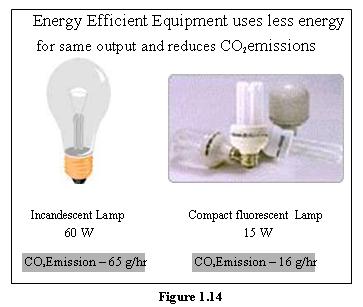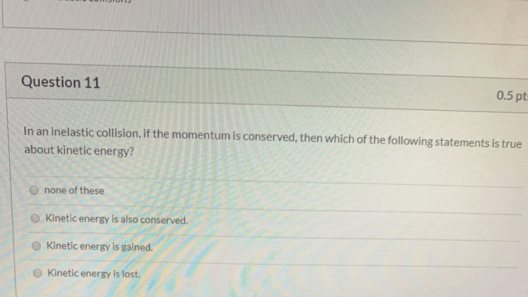Energy conservation, a term that resonates with urgency in today’s increasingly resource-depleted world, encompasses the practices and strategies aimed at reducing energy consumption. At its core, energy conservation is not merely about diminishing usage; it is a comprehensive understanding of energy efficiency, sustainable practices, and an ethical commitment to the environment. As our global energy demand escalates, grasping the magnitude of energy conservation and its significance is imperative for future generations.
In the face of an ever-changing climate and dwindling natural resources, it becomes essential to rethink our relationship with energy. Understanding conservation not only fosters a sustainable environment but also reignites a communal sense of responsibility towards the planet. Let us delve into the facets of energy conservation and explore why preserving energy is a pivotal endeavor for humanity.
The Fundamentals of Energy Conservation: What You Must Know
Energy conservation can be summarized as the practice of significantly reducing energy use while achieving the same level of comfort, convenience, and utility. It encompasses various methods, such as opting for energy-efficient appliances, enhancing insulation in buildings, and employing smarter energy consumption practices. This multifaceted approach necessitates a collective understanding that every small effort contributes to a larger goal—mitigating the impact of climate change and conserving essential natural resources.
It is crucial to distinguish between energy conservation and energy efficiency. While conservation emphasizes reduction in energy use through behavioral changes, efficiency focuses on utilizing technologies that require less energy to perform the same function. Both approaches are synergistic; together they drive towards a more sustainable paradigm. For instance, incorporating energy-efficient technologies in our heating systems, paired with conscious behavioral shifts—like lowering thermostat settings in winter—creates an exhaustive strategy for energy stewardship.
The Environmental Imperative: Why Energy Conservation Matters
Energy conservation holds profound implications for our environment. The burning of fossil fuels—our primary source of energy—has dire consequences on air quality, contributes to greenhouse gas emissions, and exacerbates climate change. By conserving energy, we significantly diminish our reliance on fossil fuels, thereby reducing our carbon footprint.
Moreover, energy conservation leads to diminished environmental degradation. Every kilowatt saved is a step towards the preservation of ecosystems. The extraction processes associated with fossil fuels—such as mining, drilling, and fracking—inflict irrevocable harm on land and water resources. By committing to energy conservation, we protect wildlife habitats, safeguard biodiversity, and preserve the delicate balance of our planet’s ecosystems.
Financial Benefits of Energy Conservation: A Wise Investment
Beyond its environmental advantages, energy conservation also presents substantial economic benefits. On an individual level, implementing energy-saving measures translates into reduced utility bills, yielding significant savings over time. Homeowners and businesses alike can optimize their energy expenditures through simple strategies, such as utilizing programmable thermostats, engaging in regular maintenance of appliances, and investing in high-efficiency heating and cooling systems.
At a macroeconomic level, the energy conservation movement prompts job creation within the renewable energy sector. Public policy initiatives that encourage sustainable practices—such as tax incentives for energy-efficient upgrades—stimulate local economies and foster entrepreneurial opportunities. This reflects an overarching trend: a society committed to conserving energy thrives economically through innovation, technological advancement, and sustainable practices.
Cultivating a Culture of Conservation: Shifting Perspectives
For energy conservation to materialize, a profound cultural shift is necessary. Education plays a paramount role in fostering awareness about the significance of energy consumption. By instilling knowledge about individual contributions to energy conservation, communities can rally together to adopt environmentally friendly habits. Schools, organizations, and governments should promote energy literacy, enabling individuals to comprehend the implications of their energy choices.
Additionally, leveraging technology can significantly enhance conservation efforts. Smart home technologies, such as energy monitoring systems, empower consumers to visualize their energy use in real time. This transparency cultivates mindfulness around energy consumption, encouraging more responsible decisions. When people witness firsthand the impact of their behaviors through data, they tend to foster a communal identity centered on sustainability.
Incentivizing Change: Policies and Community Engagement
Policies at both the local and national levels are critical facilitators of energy conservation. Governments can implement frameworks that incentivize conservation practices, such as subsidies for renewable energy projects, energy efficiency programs, and stricter regulations on emissions. These policies not only positively impact the environment but also drive economic growth within emerging green industries.
Engagement at the community level can further galvanize energy conservation initiatives. By organizing local programs, workshops, and energy competitions, communities can foster camaraderie and collective responsibility towards energy stewardship. Such grassroots movements can significantly amplify awareness and create a culture where conservation becomes intrinsic to community identity.
Conclusion: The Road Ahead
Energy conservation is not merely an act of reducing usage; it is a profound commitment to protecting our planet for generations to come. Understanding the importance of energy preservation transcends individual actions and invites a collective journey towards sustainable living. As we face the grandeur of climate imperatives, embracing energy conservation offers a pathway to a resilient and thriving ecosystem. The promise lies within. The time for consciousness is now.





